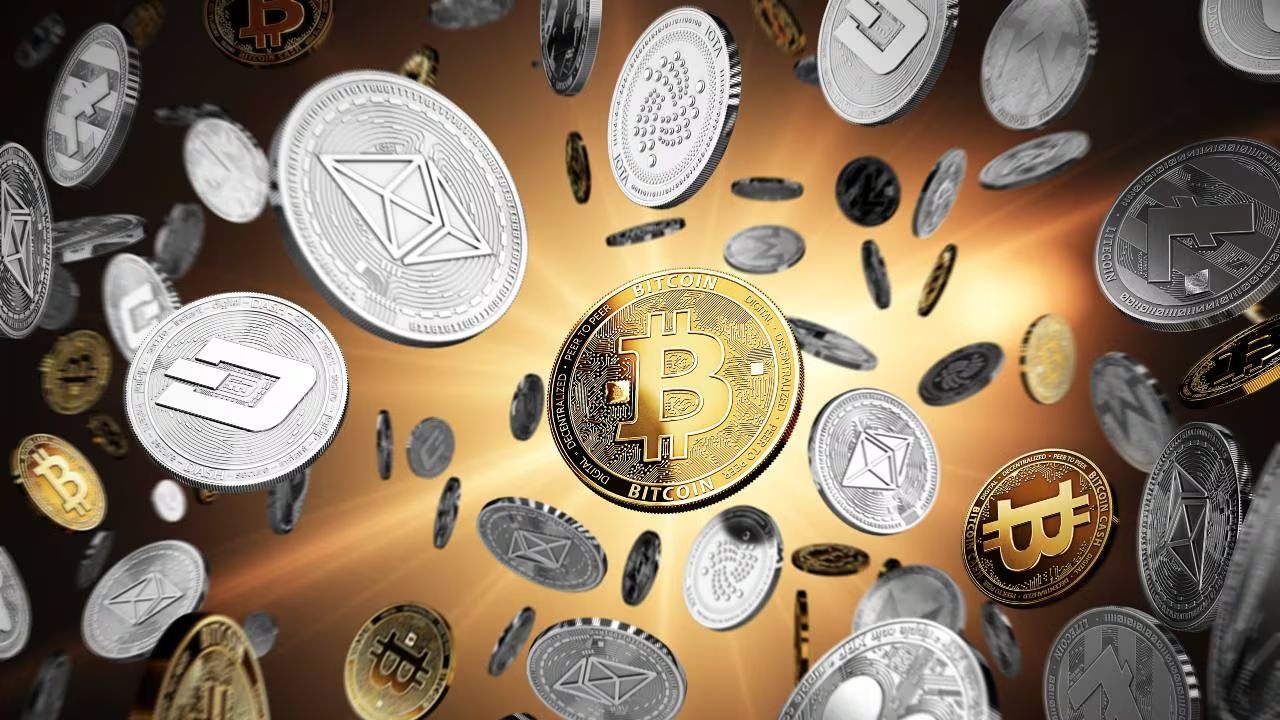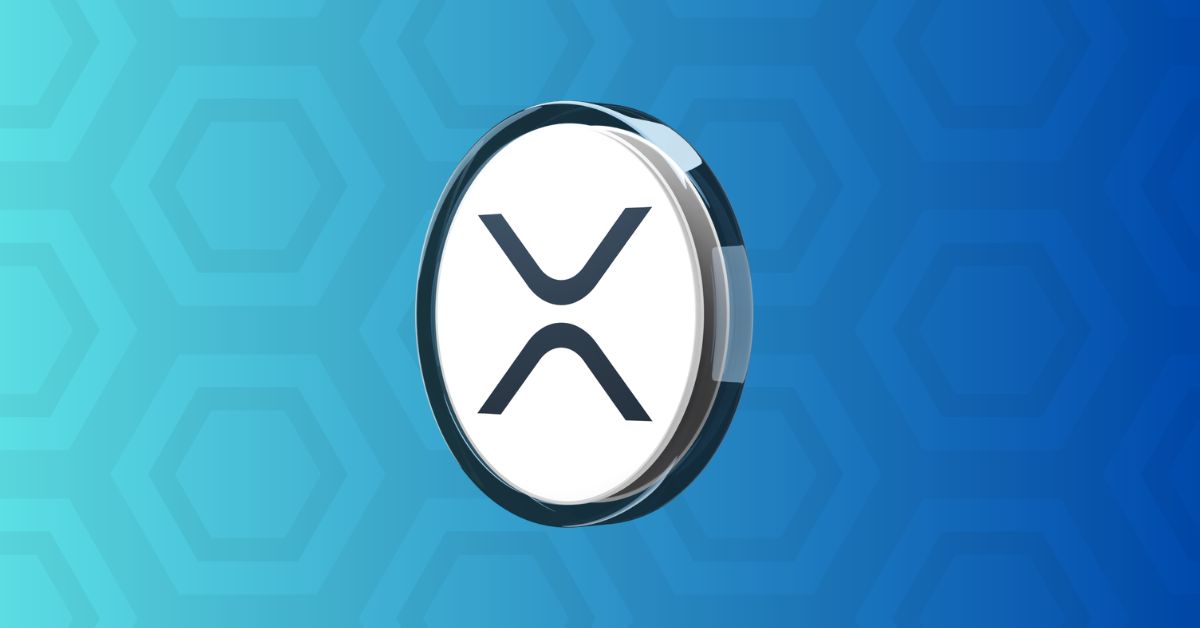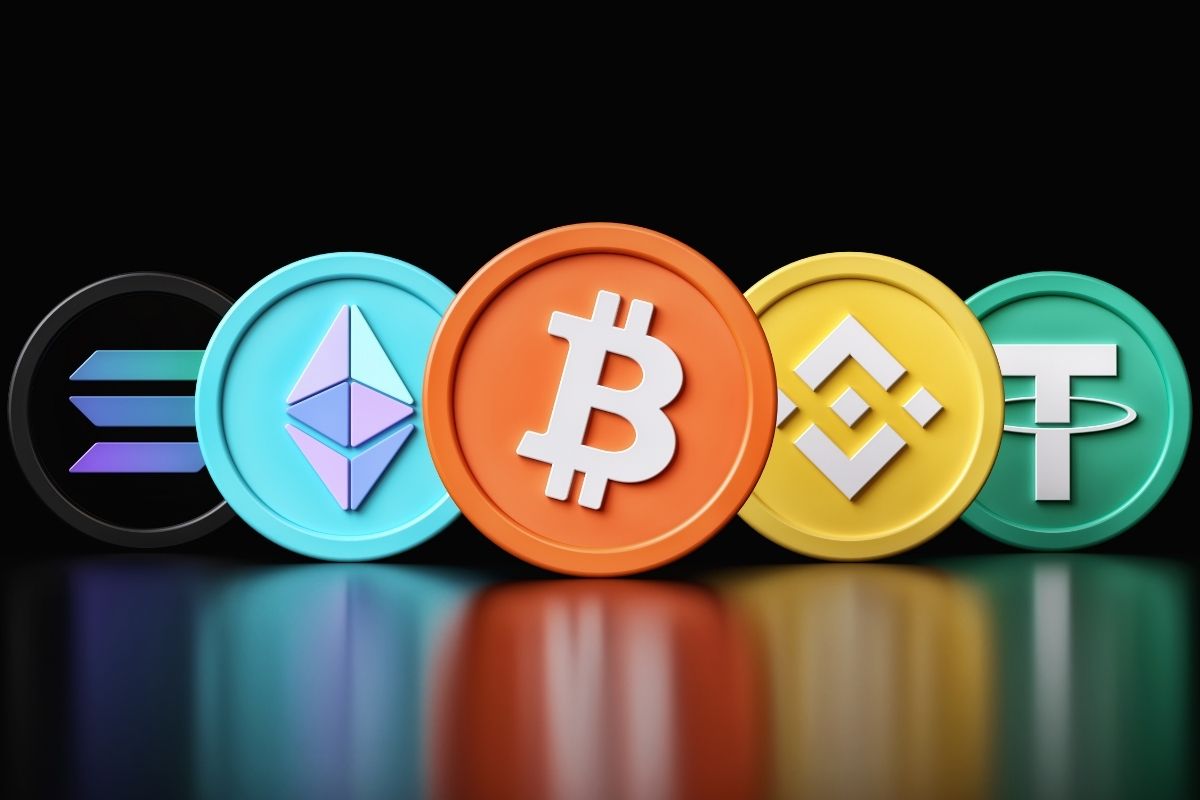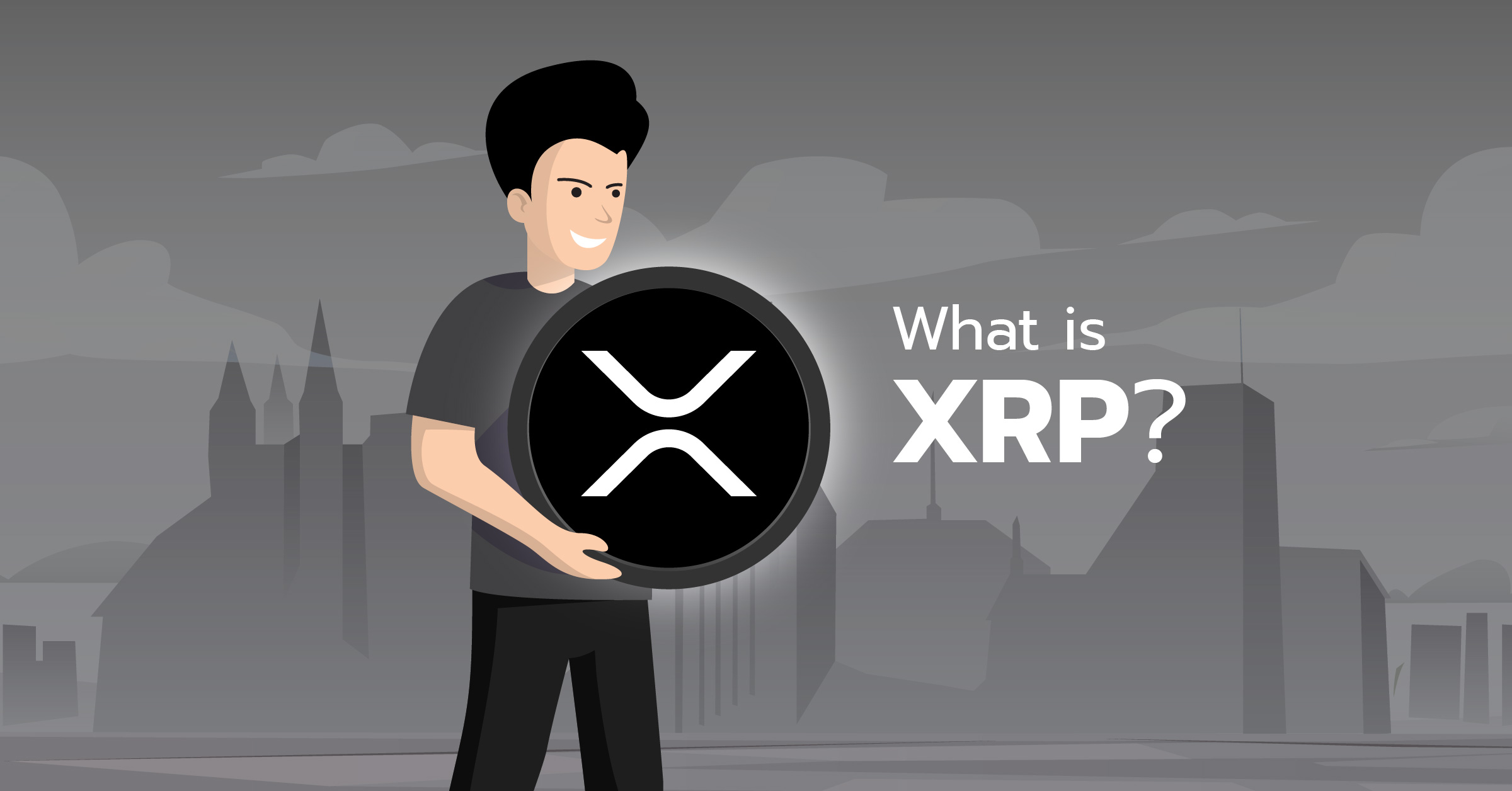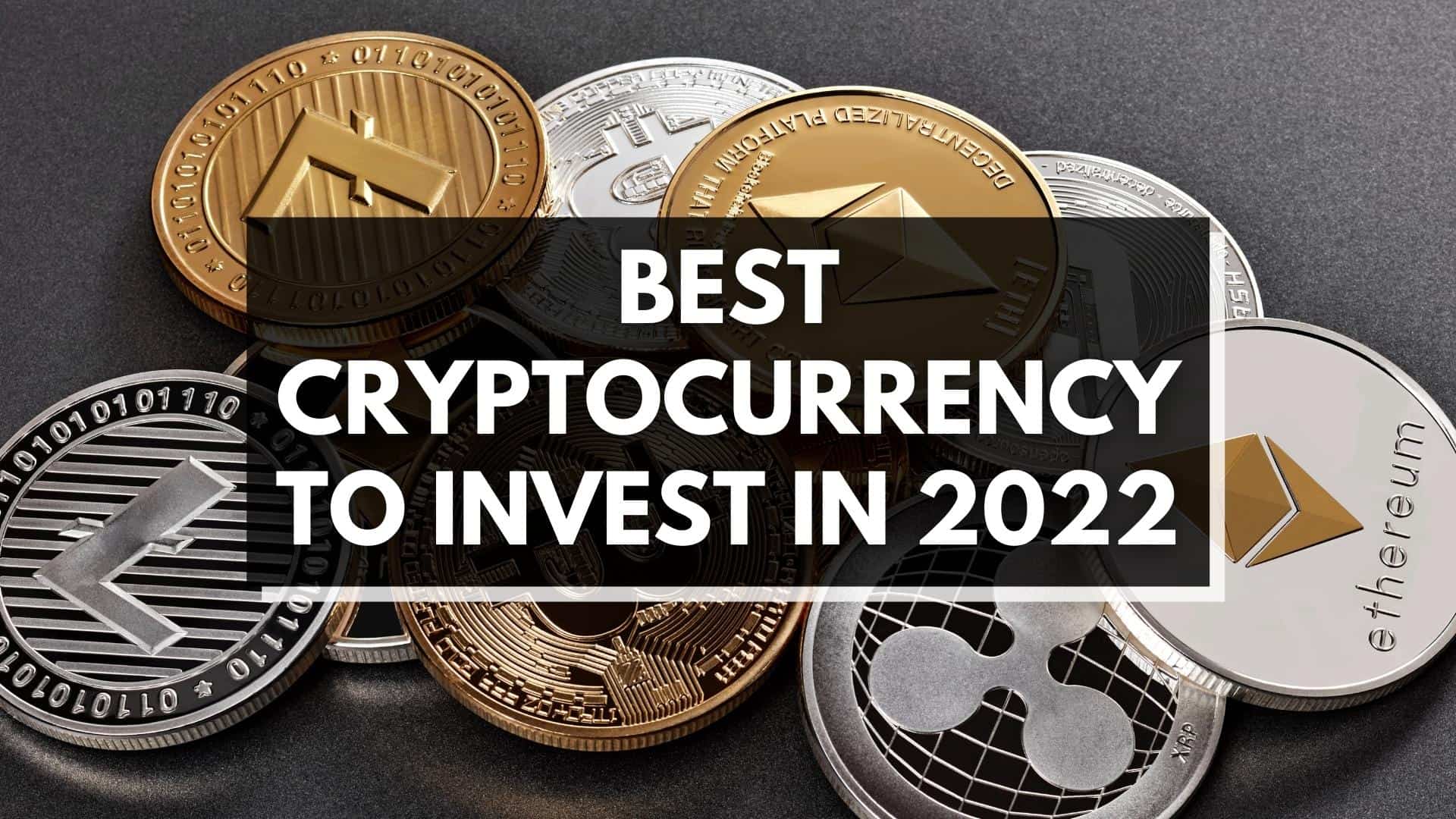Introduction
Blockchain technology has gained immense popularity in recent years, revolutionizing various industries such as finance, supply chain management, and healthcare. As the use cases for blockchain continue to expand, one crucial aspect that often comes into question is its speed. The speed of a blockchain refers to the time it takes to process transactions and validate them on the network.
In a world where instant transactions and real-time data are becoming the norm, the speed of a blockchain platform plays a vital role in its adoption and success. To understand the concept of a fast blockchain, we need to explore the factors that affect its speed and compare different blockchain platforms in terms of their transaction processing capabilities.
A fast blockchain offers several benefits, including quicker transaction confirmations, increased scalability, and improved user experience. It enables businesses to process a higher volume of transactions per second, facilitating seamless and efficient operations.
In this article, we will delve into the intricacies of fast blockchain technology, define its key components, and examine the factors that influence the speed of a blockchain platform. Furthermore, we will compare ten popular blockchain platforms in terms of their transaction processing capabilities to identify the fastest ones available in the market.
It is important to note that while speed is a crucial factor, it should not be the sole determining factor when selecting a blockchain platform. Other factors such as security, decentralization, governance, and community support also play significant roles in the overall functionality and adoption of a blockchain.
Now, let’s explore the fundamental aspects of blockchain technology and the factors that contribute to its speed.
Definition of Blockchain
Blockchain is a distributed ledger technology that allows multiple parties to maintain a shared database without the need for a central authority. It is essentially a chain of blocks, where each block contains a collection of transactions. These transactions are recorded in a timestamped and chronological order, creating an immutable and transparent record of all activities on the network.
What sets blockchain apart is its decentralized nature, which means there is no single point of failure or control. Instead, the network participants work together to validate transactions through a consensus mechanism, ensuring the integrity and security of the data.
Blockchain technology relies on cryptographic algorithms to secure the data and prevent tampering or unauthorized access. Each block in the chain is linked to the previous block through a cryptographic hash, creating a continuous and unbroken sequence of blocks.
When a new transaction is initiated, it is broadcasted to all the participants in the network. The participants, also known as nodes, verify the transaction’s validity based on predefined rules and algorithms. Once verified, the transaction is added to a block and added to the blockchain. This process of verifying and adding new blocks is known as mining.
The decentralized and transparent nature of blockchain technology offers numerous advantages. It eliminates the need for intermediaries, reduces transaction costs, enhances security, and enables trust among participants. Additionally, blockchain enables the development of smart contracts, which are self-executing agreements that automatically execute predefined actions when specific conditions are met.
Overall, blockchain technology has the potential to revolutionize various industries by providing a secure, transparent, and efficient way to track and record transactions. However, to fully leverage its benefits, it is crucial to understand the factors that influence the speed of a blockchain platform.
Factors Affecting Blockchain Speed
Several factors can impact the speed of a blockchain platform. Understanding these factors is essential for identifying the key determinants that contribute to the overall transaction processing capabilities of a blockchain network. Here are some important factors that affect blockchain speed:
1. Block Size and Block Time: The size of each block and the time it takes to create a new block significantly influence the speed of a blockchain. A larger block size allows for more transactions to be included, increasing transaction throughput. Similarly, a shorter block time reduces the time it takes to confirm and validate transactions.
2. Consensus Mechanism: The consensus mechanism used by a blockchain platform plays a crucial role in determining its speed. Proof-of-Work (PoW), the consensus mechanism used by Bitcoin, and Proof-of-Stake (PoS), used by platforms like Ethereum, have different implications for speed. PoW requires extensive computational power and time to solve complex mathematical puzzles, resulting in slower transaction processing. On the other hand, PoS, which relies on validators holding a certain amount of cryptocurrency to validate transactions, can offer faster transaction processing.
3. Network Scalability: The scalability of a blockchain network refers to its ability to handle a large number of transactions simultaneously. As more participants join a blockchain network, the number of transactions increases. It is crucial for a blockchain platform to have efficient mechanisms in place to handle scalability challenges and maintain fast transaction processing speeds.
4. Network Congestion: Network congestion can significantly impact the speed of a blockchain. When a large number of transactions are pending, it can result in delays in transaction confirmation and validation. Blockchain platforms need to have effective mechanisms to manage network congestion and ensure optimum transaction processing speeds.
5. Protocol Updates: Regular protocol updates can improve the speed and performance of a blockchain platform. By implementing optimizations and enhancements, blockchain developers can address scalability issues and introduce new features that improve transaction processing speeds.
6. Hardware Infrastructure: The hardware infrastructure supporting a blockchain network, including the nodes and miners, can influence the speed of transaction processing. The computational power and network connectivity of these components play a vital role in ensuring efficient and fast transaction validation.
These factors collectively influence the speed at which transactions are processed on a blockchain. Platforms that address these factors effectively can achieve higher transaction throughput and faster transaction confirmations, making them inherently faster blockchain platforms.
Comparison of Fast Blockchain Platforms
When it comes to fast blockchain platforms, there are several options available in the market. Here, we will compare ten popular blockchain platforms in terms of their transaction processing capabilities to identify the fastest ones:
1. Bitcoin: Bitcoin, the first blockchain platform, has a block time of around 10 minutes and a relatively small block size. While Bitcoin is secure and decentralized, its transaction throughput is limited, making it slower compared to other platforms.
2. Ethereum: Ethereum, a versatile blockchain platform, has a block time of around 13-15 seconds. With its ability to execute smart contracts, Ethereum provides faster transaction processing compared to Bitcoin.
3. Ripple: Ripple is known for its fast and efficient transaction processing. It can handle up to 1,500 transactions per second, making it one of the fastest blockchain platforms.
4. Stellar: Stellar is another blockchain platform designed for fast and low-cost transactions. It has a block time of around 3-5 seconds and can handle thousands of transactions per second.
5. EOS: EOS is a high-performance blockchain platform that utilizes a delegated proof-of-stake (DPoS) consensus mechanism. With a block time of just 0.5 seconds and a scalable infrastructure, EOS offers fast and efficient transaction processing.
6. Tron: Tron is a blockchain platform focused on decentralized applications (DApps) and content distribution. It has a block time of around 3 seconds, ensuring quick transaction confirmations.
7. Nano: Nano is known for its instant and fee-less transactions. It utilizes a block-lattice structure and has extremely fast transaction confirmation times, typically within a few seconds.
8. Dash: Dash, a privacy-focused blockchain platform, has introduced features like InstantSend and PrivateSend to enhance transaction speed and anonymity. Dash transactions can be confirmed within seconds.
9. NEO: NEO, often referred to as the “Chinese Ethereum,” has a block time of around 15 seconds. While it may not be the fastest blockchain platform, NEO offers scalability and supports the development of decentralized applications.
10. Cardano: Cardano is a blockchain platform known for its scientific approach to development. It aims to achieve high scalability and transaction speeds through its unique consensus algorithm, Ouroboros.
It is important to remember that these comparisons are based on current capabilities and may evolve as blockchain platforms continue to innovate and improve their technologies. Additionally, the speed of a blockchain can vary depending on various factors, including network congestion and transaction volume.
As blockchain technology continues to mature, new platforms and developments may emerge that offer even faster transaction processing speeds. Evaluating the specific requirements and needs of a project or use case will help determine the most suitable and fastest blockchain platform.
Bitcoin
Bitcoin, the pioneering cryptocurrency and blockchain platform, has gained significant recognition and adoption since its inception. However, when it comes to transaction speed, Bitcoin is not the fastest blockchain platform available.
Bitcoin has a block time of approximately 10 minutes. This means that it takes about 10 minutes for a new block of transactions to be added to the blockchain. The block size limit of 1MB further contributes to the slower transaction processing speed of Bitcoin.
While Bitcoin’s slower transaction speed may be seen as a limitation, it is important to note that Bitcoin was primarily designed to be a secure and decentralized store of value. As a result, the focus of the Bitcoin network is on security and immutability rather than fast transaction processing.
Bitcoin’s use of the Proof-of-Work (PoW) consensus mechanism adds to the longer transaction processing time. PoW requires miners to solve complex mathematical puzzles to validate transactions and create new blocks. This process can be time-consuming and resource-intensive.
While Bitcoin may not offer the fastest transaction processing speed, its robust network and wide adoption make it a reliable and trusted blockchain platform. Bitcoin has been widely recognized as a digital asset and a decentralized form of currency, making it an attractive investment and store of value for many individuals and institutions.
Efforts are underway to address Bitcoin’s scalability challenges and improve its transaction processing speed. Initiatives such as the Lightning Network aim to enable off-chain transactions, allowing for faster and more scalable Bitcoin transactions while leveraging the security of the underlying blockchain.
Despite its relatively slower transaction speed, Bitcoin continues to play a significant role in the world of cryptocurrencies and blockchain technology. Its decentralized nature and first-mover advantage have solidified its position as one of the most well-known and widely used blockchain platforms in the world.
Ethereum
Ethereum, often referred to as the “world computer,” is a decentralized blockchain platform that has gained immense popularity for its smart contract functionality and diverse range of decentralized applications (DApps). In terms of transaction speed, Ethereum offers faster processing compared to Bitcoin.
Ethereum has a block time of around 13-15 seconds, which is significantly faster than Bitcoin’s 10-minute block time. This means that new blocks, containing validated transactions, are added to the Ethereum blockchain every 13-15 seconds.
The faster transaction processing speed of Ethereum can be attributed to several factors. Firstly, Ethereum utilizes the Proof-of-Work (PoW) consensus mechanism, similar to Bitcoin. However, Ethereum has plans to transition to a Proof-of-Stake (PoS) consensus mechanism known as Ethereum 2.0. This transition is expected to significantly improve scalability and transaction speed.
Another factor that contributes to Ethereum’s transaction speed is its ability to execute smart contracts. Smart contracts are self-executing agreements that automatically execute predefined actions when specific conditions are met. While smart contracts introduce additional complexity, they enable more efficient and faster processing of transactions compared to traditional methods.
Ethereum’s transaction speed, while faster than Bitcoin, is still limited compared to some other blockchain platforms. However, Ethereum has ongoing scalability solutions, such as Ethereum Layer 2 solutions and shard chains, that aim to increase transaction throughput and improve overall network performance.
It is important to note that Ethereum is often used for a wide range of applications beyond simple currency transfers. The flexibility and programmability of Ethereum make it suitable for building complex decentralized applications, decentralized finance platforms, and more. The transaction speed requirements may vary depending on the specific use case.
Overall, Ethereum’s faster transaction processing speed compared to Bitcoin, along with its well-established ecosystem and developer community, has made it one of the most widely adopted blockchain platforms. As Ethereum continues to evolve, with upcoming upgrades, it is expected to further enhance its transaction speed and scalability, solidifying its position in the blockchain industry.
Ripple
Ripple is a blockchain platform specifically designed for fast and efficient transaction processing, making it one of the fastest blockchain platforms available. With its native cryptocurrency, XRP, Ripple aims to facilitate seamless cross-border payments and enable instant transaction settlements.
Ripple’s transaction speed is a key differentiator in the blockchain space. The platform has the capability to handle a high volume of transactions, with the ability to process up to 1,500 transactions per second. This speed is significantly higher than Bitcoin and Ethereum, making Ripple an attractive option for institutions and businesses that require fast and reliable transaction processing.
Ripple achieves its impressive transaction speed through its unique consensus mechanism known as the Ripple Protocol Consensus Algorithm (RPCA). Unlike traditional proof-of-work or proof-of-stake mechanisms, RPCA utilizes a network of trusted validators to agree on the validity and order of transactions. This consensus algorithm eliminates the need for extensive computational resources, which results in faster transaction confirmation times.
Another feature that contributes to Ripple’s speed is its use of the XRP Ledger, which is a decentralized ledger that supports the XRP cryptocurrency. The XRP Ledger has a native currency, XRP, which facilitates fast and low-cost transactions. Additionally, the XRP Ledger can settle transactions within three to five seconds, providing near-instant transaction confirmations.
Ripple’s focus on transaction speed and efficiency has made it a popular choice for financial institutions and remittance providers. By utilizing Ripple’s blockchain technology, these institutions can streamline their cross-border payment processes, reduce settlement times, and lower transaction costs.
It is important to note that Ripple’s network may not be as decentralized as some other blockchain platforms. Ripple Labs, the company behind Ripple, holds a significant amount of XRP, which has led to discussions about centralization. However, Ripple’s transaction speed and its potential to revolutionize cross-border payments have made it a prominent player in the blockchain industry.
Overall, Ripple’s fast and efficient transaction processing capabilities, combined with its focus on facilitating global payments, make it a notable blockchain platform. As the demand for instant and low-cost transactions continues to grow, Ripple’s speed and scalability make it a compelling option for various use cases in the financial industry.
Stellar
Stellar is a blockchain platform that focuses on fast and low-cost transactions, making it one of the fastest blockchain platforms available. With its native cryptocurrency, Lumens (XLM), Stellar aims to facilitate quick, secure, and affordable cross-border payments.
One notable feature of Stellar is its fast transaction processing speed. The platform has a block time of around 3-5 seconds, which is significantly faster compared to Bitcoin and even Ethereum. This speedy transaction processing time enables near-instantaneous transaction confirmations, allowing users to experience quick and efficient transfers of value.
Stellar achieves its fast transaction processing speed through its unique consensus algorithm called the Stellar Consensus Protocol (SCP). This consensus protocol utilizes a federated Byzantine agreement system, allowing for fast and secure consensus among a network of trusted nodes. The SCP ensures that transactions are confirmed and added to the blockchain quickly, resulting in fast transaction settlements.
In addition to its fast transaction processing, Stellar is also known for its ability to handle a high volume of transactions. The platform has the potential to process thousands of transactions per second, making it well-suited for scenarios where scalability is crucial.
Another advantage of Stellar is its focus on affordable transactions. Stellar’s transaction fees are typically low, enabling users to carry out cost-effective transactions, particularly when it comes to cross-border payments. This feature makes Stellar an attractive option for individuals, businesses, and financial institutions seeking a blockchain platform that offers both speed and affordability.
Stellar’s fast transaction processing speed and scalability have made it a popular choice for various use cases, particularly in the domain of cross-border remittances and tokenized assets. The Stellar Development Foundation actively works to expand the network’s capabilities and increase adoption by fostering partnerships and developments in the blockchain ecosystem.
Overall, Stellar’s commitment to fast and affordable transactions, coupled with its scalability, has positioned it as a competitive blockchain platform. As the demand for fast and secure transactions continues to rise, Stellar’s emphasis on speed, low costs, and cross-border capabilities make it a compelling choice for individuals and organizations seeking a fast and efficient blockchain network.
EOS
EOS is a blockchain platform known for its high-performance capabilities and fast transaction processing speed. It aims to provide a scalable infrastructure that can support a wide range of decentralized applications (DApps) and enable seamless user experiences.
One of the key features that sets EOS apart is its impressive transaction speed. EOS has a block time of just 0.5 seconds, making it one of the fastest blockchain platforms available. This means that new blocks are added to the EOS blockchain every half a second, allowing for near-instant transaction confirmations.
EOS achieves its fast transaction processing speed through its consensus mechanism known as Delegated Proof-of-Stake (DPoS). In the DPoS system, block producers (referred to as “block producers”) are elected by token holders to validate transactions and create new blocks. This efficient consensus mechanism enables quick and seamless transaction processing on the EOS network.
Another factor contributing to EOS’s speed is its focus on scalability. EOS uses parallel processing, where transactions can be processed simultaneously, improving the overall transaction throughput. This horizontal scalability allows EOS to handle a significant volume of transactions without compromising speed.
The combination of fast transaction processing and scalability makes EOS well-suited for applications that require a high degree of responsiveness and processing power. It has found applications in domains such as gaming, decentralized exchanges, and social media platforms.
It is important to note that EOS’s consensus mechanism, while efficient, has been subject to some criticism regarding its decentralization. In the DPoS system, a small number of elected block producers control the validation process, raising concerns about centralization. However, EOS continues to work towards striking a balance between speed, scalability, and decentralization.
Overall, EOS’s fast transaction processing speed and scalability make it an attractive choice for developers and businesses seeking a blockchain platform capable of handling high transaction volumes. As EOS continues to evolve and with the advent of EOSIO software, it is expected to further enhance its performance, solidifying its position as one of the fastest and most scalable blockchain platforms in the industry.
Tron
Tron is a blockchain platform designed to power decentralized applications (DApps) and provide an efficient infrastructure for digital content distribution. When it comes to transaction speed, Tron stands out as one of the fastest blockchain platforms available.
Tron has a block time of around 3 seconds, making it considerably faster than many other blockchain platforms. With its short block time, Tron enables rapid transaction confirmations, providing users with a seamless and efficient experience.
Tron’s fast transaction processing speed is achieved through its consensus mechanism known as Delegated Proof-of-Stake (DPoS). In the DPoS system, block validators, known as Super Representatives, are elected by Tron token holders to create new blocks and validate transactions. This efficient consensus mechanism allows for quick transaction processing and near-instant transaction confirmations.
In addition to its fast transaction speed, Tron is focused on scalability. The platform can handle a significant volume of transactions, making it suitable for applications that require high throughput. As a result, Tron has positioned itself as a popular choice for decentralized entertainment platforms, social media applications, and gaming DApps.
While Tron offers fast transaction processing, it is important to note that the platform’s transaction speed can be influenced by network congestion and the number of active users. During periods of high demand, the increased transaction volume can potentially lead to longer confirmation times.
Tron’s dedication to speed, scalability, and improving user experience has made it a significant player in the blockchain industry. The platform continues to grow its ecosystem by attracting developers and fostering partnerships, contributing to its overall adoption and success.
Overall, Tron’s fast transaction processing speed, coupled with its scalability and focus on decentralized applications, positions it as an appealing choice for developers and businesses seeking speedy and efficient blockchain infrastructure. As Tron continues to evolve and expand its capabilities, it is expected to further solidify its position as one of the fastest and most scalable blockchain platforms in the market.
Nano
Nano, formerly known as Raiblocks, is a unique blockchain platform that distinguishes itself with its instant and fee-less transactions. Designed to prioritize speed and efficiency, Nano offers one of the fastest transaction processing speeds in the blockchain ecosystem.
One of the key features that sets Nano apart is its instantaneous transaction processing. Unlike many other blockchain platforms, Nano’s transactions are processed and confirmed almost instantly. This is made possible by Nano’s block-lattice structure, where every user account has its own blockchain, making each transaction independent and able to confirm separately.
In addition to its fast processing speed, Nano also prides itself on its fee-less nature. Unlike many other blockchain platforms that require transaction fees, Nano transactions are completely fee-less. This is achieved because Nano does not rely on miners or validators to confirm transactions. Each account holder in the Nano network is responsible for maintaining the integrity of their own chain.
The combination of instant transaction processing and fee-less transactions makes Nano particularly attractive for microtransactions, such as small online purchases or tipping content creators. It provides a seamless and cost-effective solution for these types of transactions.
It is worth noting that Nano’s transaction speed can be subject to network congestion or bandwidth limitations. However, even in such cases, transactions on the Nano network tend to have significantly faster confirmation times compared to traditional blockchain platforms.
Nano’s focus on speed and efficiency makes it suitable for various use cases, ranging from everyday transactions to machine-to-machine payments. Its speed and fee-less nature have gained attention from individuals and businesses looking for a blockchain platform that can provide fast and cost-effective transactions.
Overall, Nano’s instant and fee-less transaction processing, combined with its unique block-lattice structure, positions it as one of the fastest and most efficient blockchain platforms in the market. As the demand for fast and frictionless transactions continues to grow, Nano’s characteristics make it an attractive option in the blockchain ecosystem.
Dash
Dash, short for “Digital Cash,” is known for its focus on fast and private transactions. This blockchain platform aims to provide a decentralized payment network that offers both speed and anonymity, making it a notable player in the cryptocurrency space.
One of the key features that sets Dash apart is its InstantSend technology, which enables near-instant transaction confirmations. With InstantSend, Dash transactions can be confirmed within a matter of seconds compared to other blockchain platforms that may take longer. This feature provides quick and seamless transaction processing, making Dash suitable for various real-world use cases.
In addition to its fast transaction processing speed, Dash also offers a layer of privacy through its PrivateSend feature. PrivateSend utilizes a mixing process that obscures the origin and destination of transactions, enhancing the privacy and fungibility of Dash transactions.
By prioritizing both speed and privacy, Dash aims to provide a seamless user experience and cater to individuals and businesses that value fast and confidential transactions. This focus on transaction speed and privacy has positioned Dash as a viable option for retail payments, remittances, and other financial transactions.
It’s important to note that while Dash offers fast transaction processing, its scalability can be subject to network congestion or high transaction volumes. In such cases, transaction confirmations may take slightly longer. However, Dash’s InstantSend technology still provides a significant improvement in transaction speed compared to many other blockchain platforms.
Dash continues to innovate and develop new features to enhance its transaction speed and privacy. With ongoing developments and community support, Dash aims to stay at the forefront of providing fast and secure payment solutions.
Overall, Dash’s focus on fast and private transactions, coupled with its innovative features, positions it as a notable blockchain platform in the digital cash space. As the demand for fast and anonymous transactions grows, Dash’s characteristics make it a compelling choice for individuals and businesses seeking a secure and efficient payment network.
NEO
NEO, often referred to as the “Chinese Ethereum,” is a blockchain platform that focuses on digital asset management and the development of smart contracts. While NEO may not be the fastest blockchain platform in terms of transaction speed, it offers scalability and has made significant strides in improving its overall performance.
NEO has a block time of around 15 seconds, which is relatively faster than Bitcoin but slower compared to some other blockchain platforms. While transaction speed is an important factor, NEO’s focus extends beyond just speed. It emphasizes scalability and aims to provide a robust infrastructure for decentralized applications (DApps).
To facilitate faster transaction processing and scalability, NEO utilizes a consensus mechanism known as Delegated Byzantine Fault Tolerance (dBFT). With dBFT, consensus is achieved through a limited number of trusted nodes called bookkeepers. This mechanism helps NEO maintain transaction finality and efficiency, allotting validity and reliability to the system.
NEO’s scalability is further enhanced by its ability to support a high number of transactions per second. Currently, the platform has the capacity to handle up to 1,000 transactions per second, making it suitable for applications with high demand.
NEO’s transaction speed and scalability make it a suitable choice for various uses, especially in the realm of digital asset management and smart contract execution. It caters to projects that require a reliable and scalable blockchain platform to facilitate secure and efficient transactions.
NEO’s commitment to continuous improvement is evident through its ongoing research and development efforts. The platform continues to make enhancements to its infrastructure, including upcoming updates such as NEO3. These updates aim to further improve performance, scalability, and transaction speed.
While NEO may not be the fastest blockchain platform in terms of transaction speed, its focus on scalability, finality, and smart contract execution makes it a compelling choice for developers and enterprises. As it continues to evolve and adapt, NEO aims to provide a reliable and efficient blockchain infrastructure to support a wide range of decentralized applications.
Cardano
Cardano is a smart contract platform that aims to provide a secure and scalable blockchain infrastructure. While Cardano may not be the fastest blockchain platform in terms of transaction speed, its focus on research and scientific methodology sets it apart in terms of innovation and long-term sustainability.
Cardano’s block time is around 20 seconds, which is relatively slower compared to some other blockchain platforms. However, speed is not the sole focus of Cardano. The platform emphasizes security, scalability, and sustainability as critical factors in its development.
Cardano’s transaction processing speed is achieved through its unique consensus algorithm known as the Ouroboros protocol. The Ouroboros protocol ensures the secure and efficient validation and confirmation of transactions by a network of decentralized nodes. While it may not be the fastest, the algorithm is designed to strike a balance between security, decentralization, and performance.
Additionally, Cardano employs a layer-based architecture, consisting of two layers: the Cardano Settlement Layer (CSL) and the Cardano Computation Layer (CCL). This separation allows for scalability and future updates without compromising security or stability.
Cardano’s commitment to scientific research and peer-reviewed development has established it as a platform with long-term goals. The platform follows a thorough research-driven approach to ensure security, formal verification, and robustness in its infrastructure, making it suitable for applications that require a high degree of reliability.
While Cardano’s transaction speed may not be the fastest, its focus on scalability and security has led to ongoing efforts, such as the development of the Hydra scaling solution, to improve the overall transaction performance and increase the platform’s capacity for handling a higher volume of transactions.
Cardano’s dedication to scientific rigor, security, and scalability has made it an attractive choice for various use cases, particularly in industries that require robustness and long-term sustainability. By prioritizing scientific research and a careful approach to development, Cardano aims to provide a solid foundation for future blockchain innovation.
Overall, Cardano may not be the fastest blockchain platform in terms of transaction speed, but its commitment to research, security, and scalability positions it as a notable player in the blockchain industry. As Cardano continues to evolve and implement advancements, it strives to provide a secure and sustainable platform for smart contract deployment and decentralized applications.
Conclusion
When it comes to blockchain technology, transaction speed plays a crucial role in the efficiency and usability of a platform. While different blockchain platforms offer varying transaction processing speeds, it is important to consider other factors such as security, scalability, and decentralization in addition to speed when selecting a blockchain platform.
In this article, we explored several fast blockchain platforms and examined the factors that contribute to their transaction processing capabilities. Bitcoin, Ethereum, Ripple, Stellar, EOS, Tron, Nano, Dash, NEO, and Cardano all possess unique features and characteristics that make them suitable for different use cases.
Bitcoin, as the first blockchain platform, provides a secure and decentralized store of value, but its transaction speed is relatively slower. Ethereum, on the other hand, offers faster transaction processing and supports the development of smart contracts and decentralized applications.
Ripple and Stellar excel in terms of transaction speed, making them ideal for efficient cross-border payments and fast transactions. EOS, Tron, and Nano prioritize speed and scalability, providing fast and seamless transaction processing for various applications.
Dash focuses on instant transactions and privacy, catering to individuals and businesses that value fast and confidential transactions. NEO and Cardano prioritize security, scalability, research, and long-term sustainability, making them promising choices for robust blockchain infrastructure that supports decentralized applications.
It’s important to note that while transaction speed is an important consideration, it should not be the sole determining factor when selecting a blockchain platform. Each platform has its own strengths, weaknesses, and specific use cases where its features align with the project requirements.
As the blockchain industry continues to evolve, we can expect advances in technology and further improvements in transaction processing speeds. Developers and businesses are continuously exploring innovative solutions to enhance scalability, security, and overall performance, ensuring that blockchain technology remains efficient and adaptable to future needs.
Ultimately, finding the right blockchain platform depends on the specific goals, needs, and use cases of the project at hand. Evaluating factors beyond speed, such as security, scalability, governance, and community support, is crucial for making informed decisions that promote successful blockchain implementations and applications.







